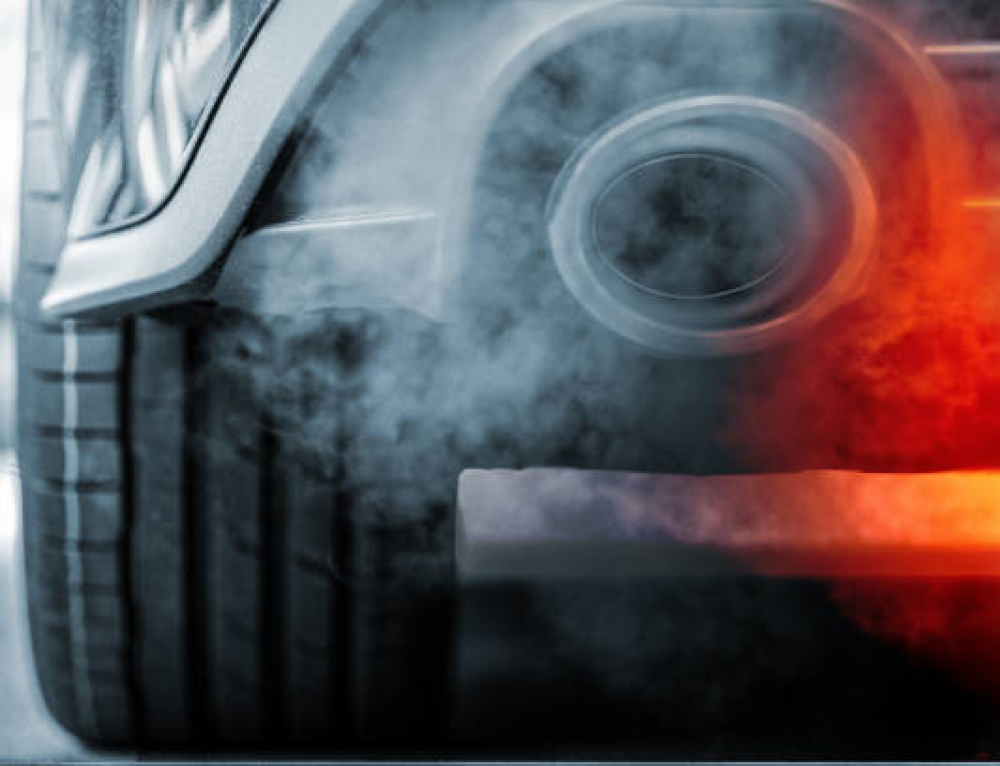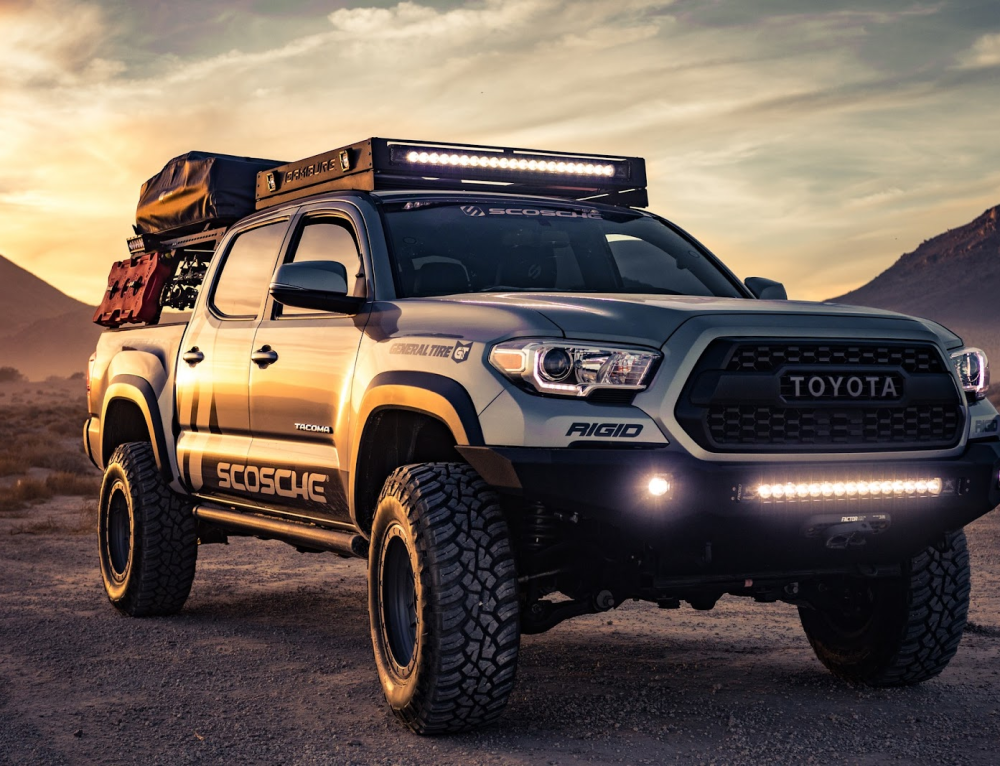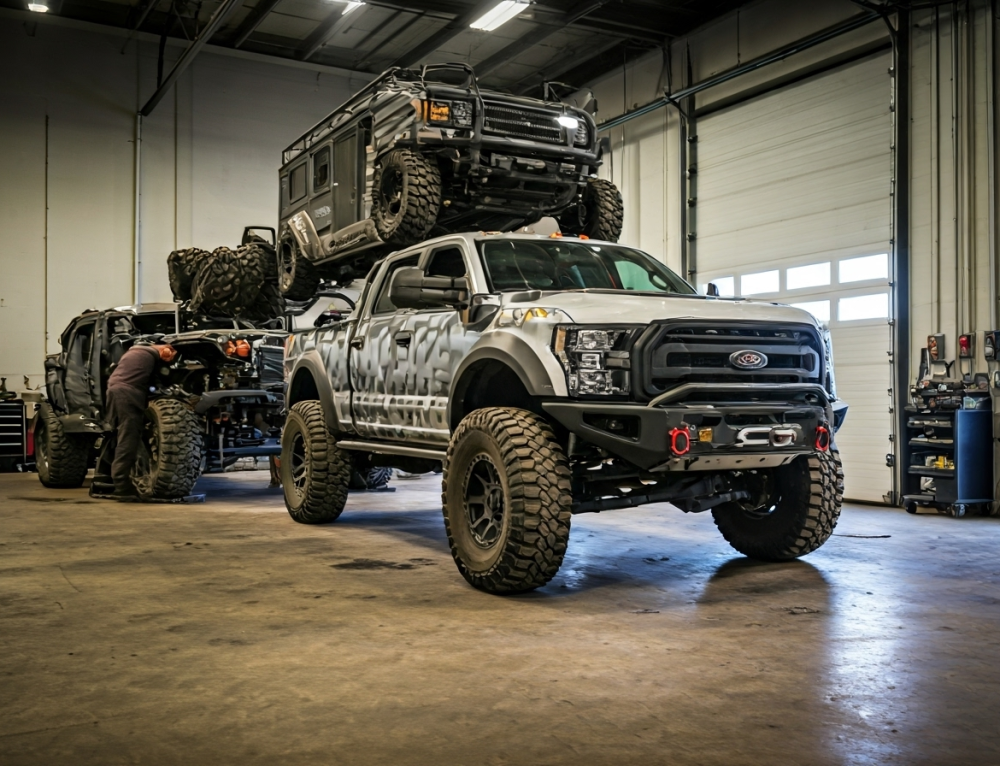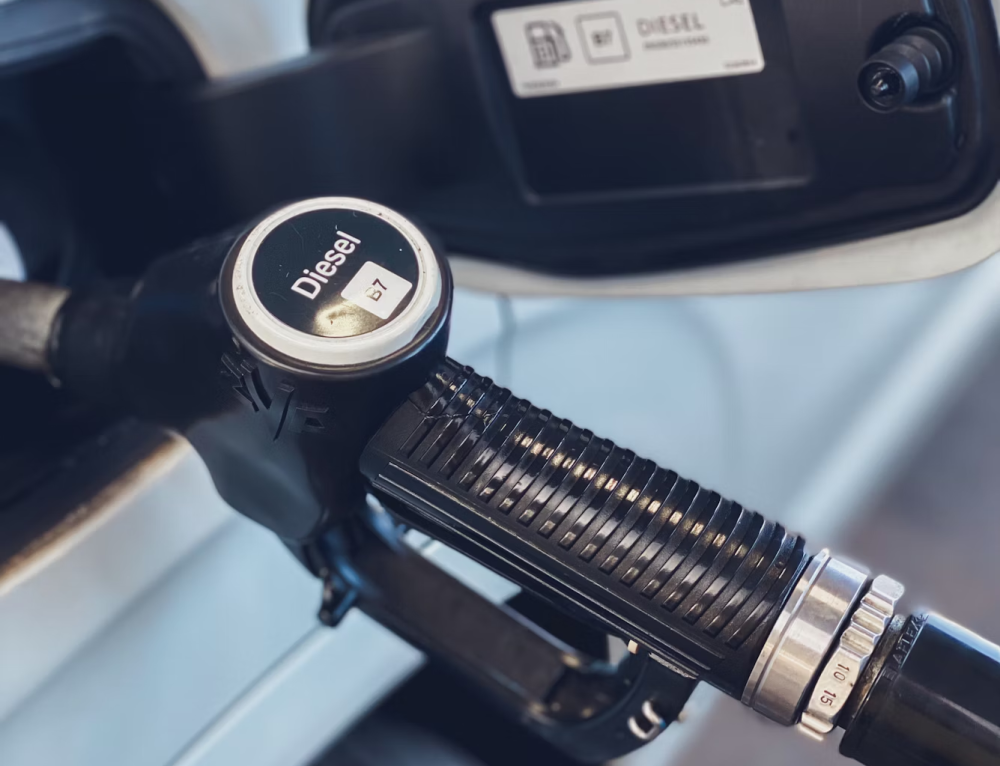Diesel engines might be over a century old, but they’re far from obsolete. In fact, diesel engine vehicles will likely grow their market share by more than 100% in the next five years, specifically in the pickup truck segment due to their better MPG.
If you’re considering your next vehicle, you might wonder whether you should buy a diesel engine vehicle. But aside from that surge in popularity, why should you go for a diesel-powered engine in 2024? What are the good and the bad of driving diesel cars or trucks? And what’s new for the diesel industry in terms of innovations and developments?
Well, in this article, we will provide the answer to these questions and many others and show you why a diesel engine vehicle is a smart investment for your next new car purchase. If you’re looking to buy a diesel engine vehicle, we will also tell you about the improvements made to diesel models over the years by top manufacturers such as Audi, GM, Mercedes-Benz, and Volkswagen, ultimately helping you make the best purchase for your fleet’s bottom line.
Qualities of Diesel Engine Vehicles
You should go for a diesel engine vehicle if any of the qualities we’ll mention here are attractive to you:
- They are very efficient
We’re talking about 25 – 30% savings on consumption as compared to conventional petrol engines, and that is a fantastic and crazy difference. A diesel engine vehicle also has a greater capacity of energy per liter, so you get an extended range on a single liter. A full tank just might get you across entire states. Diesel engines also release less CO2 than gasoline engines do, allowing for the reduction of greenhouse effects and global warming.
- They are exceptionally reliable
Diesel engines compare favorably with regular gas engines as far as durability is concerned. They can manage high compression ratios and pressures, and they can take you up to 350,000 miles (about 563270.4 km) before you need any costly repairs.
If you decide to buy a diesel engine vehicle, you’ll find it requires way less maintenance and ignition tuning, as it has no spark plugs, reactors, or distributors to speak of. They also have a more efficient fuel ratio and employ compression ignition, which increases their longevity and performance. That’s a win if ever there was one.
- They are immensely powerful
Diesel engines provide not only a lot of torque but also power, which makes them suitable for towing or carrying big loads. A diesel engine vehicle is built to handle heavy-duty tasks effectively.
If you decide to buy a diesel engine vehicle, you’ll benefit from their impressive capabilities, particularly their torque output capacity of 1,050 lb-ft. This makes them excel in speed and performance. Additionally, diesel engines boast high-value low-end torque, meaning you can pull weight from a standstill and climb steep slopes in second gear, provided you have the right tires for it.
- They are flexible
Biodiesel is a vegetable-oil- or animal-fat-derived eco-friendly energy source for diesel engine vehicles. With biodiesel, you can reduce the toxicity of the exhaust gases your vehicle produces and improve its lubrication, thus further increasing the lifespan of your engine. You also have synthetic diesel as an option, derived from natural gas or biomass, which also has low impurities and high energy density compared to conventional diesel.
Obviously, with these qualities, diesel engines are an obvious pick among the range of options you have for modes of transportation, especially if you’re a mileage monster. If you’re considering a new vehicle, you might want to look into how to buy a diesel engine vehicle. It does not matter if you’re looking for a diesel-powered car, truck, SUV, or luxury passenger car; there are plenty of choices on the market in the United States. Plus, if you spend a lot of time on the highways, you stand to save a lot of money in fuel costs. Additionally, diesel engines are known for their durability, making them a popular choice for off-road travel and powering farm equipment.
Or you can take a moment to look up the best 10 diesel cars of 2024, and you will see why diesel engines are worth looking at. The big names are on that list.
The Challenges of Diesel Engines
We’ve looked at various advantages of diesel engines like their fuel economy and efficiency, power, and long mileage (without maintenance). But they are not perfect (as much as we’d like them to be), so here are some of the things you might not like about diesel engine vehicles:
- They can harm the environment
In contrast to gasoline engines, diesel engine vehicles generate more NOx and PM emissions. These are noxious pollutants that affect the quality of air and human health. But manufacturers aren’t heartless. In order to control these emission levels, modern diesel engine vehicles have several devices like Selective Catalytic Reduction (SCR), Diesel Particulate Filter (DPF), Exhaust Gas Recirculation (EGR), and Diesel Oxidation Catalyst (DOC).
These devices work together to reduce harmful emissions and filter out the soot particles. However, they will add to your maintenance costs.
The DPF and SCR may sometimes need cleaning or replacement, and trust me, that’s not a cheap or fast process. Additionally, the newest diesel engine vehicles comply with the very latest EU6 emissions standards, making them suitable for driving anywhere in Europe.
On the bright side, though, diesel engine technology has been made cleaner and more in compliance with the EU 6 emissions standards, which translates to less pollution and a more friendly environment for most European drivers and even those beyond the continent.
- They can struggle in wintry weather
When the temperature drops too low, diesel engines may have difficulty in performing, due to the diesel becoming too thick or gelled, like oil or honey, and blocking proper combustion. This also can affect the battery capacity, aggravating the situation. One of the ways manufacturers – bless them! – have tried to solve this problem is with additives, heaters, or glow plugs to help the fuel flow and ignite better.
They also include high-pressure common rail technology in manufacturing diesel engines, which helps to improve the engine performance and efficiency during chilly weather. Now you can park your car out in the snow without fear.
- They can be noisy and rough
Unlike gasoline engines, diesel ones are noisy and rough, and this is attributable to their heavier components and higher pressures. Well, no one can blame you for wanting less noise level and more smoothness from your investment, especially if you decide to buy a diesel engine vehicle.
While the noise and vibration of modern diesel engines have significantly improved with better insulation and refinement, the fact remains that today’s diesel engines are not as quiet as gasoline powertrains are. This vibration is also hell on the tires, contributing to tire wear and increasing your maintenance costs.
Another factor that might contribute to your rejection of diesel engines is the lower RPM limit than gasoline engines, which causes less responsiveness. That’s not much fun.
But life is all about balance, so diesel engines have higher internal combustion pressures that improve the steering, and they’re quieter. When towing with these things, you experience less stress overall, making for a smoother and more enjoyable towing experience. Over 7 million drivers (about twice the population of Oklahoma) use or buy a diesel engine vehicle in the States, and there’s a reason for it. If you’re considering to buy a diesel engine vehicle, you’ll quickly realize that you can’t have that much torque from any other kind of vehicle, especially when equipped with a Power Stroke engine. It’s like it’s designed for towing.
The Future of Diesel Engines
Diesel engines are not going anywhere anytime soon. Despite the strict environmental regulations, public health concerns, and competition from other alternative fuels, they have overcome many challenges and remain strong to this day.
Due to the constant technological innovations, modern diesel engines are cleaner (we’ve covered that already, as well as how it’s done) and more efficient than ever. They surpassed the emission standards a while back, reducing their environmental impact. If you’re considering an upgrade, you might want to buy a diesel engine vehicle, as they continue to evolve with the innovation of hybrid diesel versions.
Hybrid Diesel Vehicles
These vehicles combine the power and mileage of diesel engine vehicles with the fun and cleanliness of electric motors so you can have the best of both worlds. Some of the most popular and upcoming vehicles are now available or will soon be in hybrid diesel versions. We’re looking at:
- The Ford F-150 PowerBoost Hybrid, a powerful and versatile pickup truck that can also serve as a mobile generator.
- The Jeep Wrangler 4xe, for the rugged and adventurous. This one can switch between electric, hybrid, and gas modes.
- The Volvo XC90 Recharge, a luxurious and spacious SUV that offers a smooth and quiet ride with a plug-in hybrid system.
- The BMW X5 xDrive45e, is a sporty and elegant SUV that combines a turbocharged engine with an electric motor for dynamic performance.
These are just some examples of the amazing diesel hybrid vehicles available (or coming) to showrooms near you in 2024. So, if you want torquey acceleration without sacrificing fuel economy or your carbon footprint — not to mention fuel savings — one might be right for you!
Cleaner Diesel Fuels
We’ve mentioned how diesel engines have become a lot cleaner using a host of devices to take out the harmfuls in stages. You might also remember us mentioning something about biodiesel and synthetic diesel. These fuels are cleaner than usual.
They come from natural or synthetic sources like biomass, waste, or natural gas, and naturally, they’re either like or better than regular diesel oil, which makes them burn cleaner and more efficiently. In the US, the Environmental Protection Agency (EPA) has promoted the benefits of cleaner diesel fuels, leading to the following developments:
- The introduction of Ultra Low Sulfur Diesel (ULSD), which emits much less pollution than older diesel fuels. This allows diesel engines to outperform gasoline engines in terms of emissions.
- The adoption of renewable diesel as an alternative to fossil fuels is gaining traction. It’s a type of biofuel that can decrease greenhouse gas emissions by up to 80% compared to traditional diesel. But it doesn’t stop there. The cetane number in renewable diesel is higher and its sulfur content is lower than conventional diesel, which improves the engine’s performance and lifespan. And the best part? You can make the switch anytime you want without opening your engine up, because it’s made from the same chemicals as regular diesel. If you’re planning to buy a diesel engine vehicle, renewable diesel can be a game-changer, offering cleaner fuel options for your engine. You can get renewable fuel from some top names like Neste, REG, and Phillips 66. You can probably find something good at your local gas station.
- The innovation of synthetic diesel, a fuel that can reduce NOx and PM emissions by up to 90% compared to the usual diesel. It also has higher energy density and lower impurities than conventional diesel. Translation: your engine will love it, and it’ll last for you. Synthetic diesel can also run in any diesel engine without needing to change anything in your engine. You can get synthetic fuel from Audi, Shell, and Sasol.
So, Why Should You Consider a Diesel Engine Vehicle?
Diesel engines might have a few unattractive qualities like higher emissions, poorer wintry weather performance, and noisiness, but with the help of advanced technology and alternative fuels, you can make these problems disappear in your diesel engine vehicle. Here’s how:
Diesel engines are not going anywhere anytime soon. Despite the strict environmental regulations, public health concerns, and competition from other alternative fuels, they have overcome many challenges and remain strong to this day.
Due to the constant technological innovations, modern diesel engines are cleaner (we’ve covered that already, as well as how it’s done) and more efficient than ever. They surpassed the emission standards a while back, reducing their environmental impact. If you’re considering an upgrade, you might want to buy a diesel engine vehicle, as they continue to evolve with the innovation of hybrid diesel versions.
Lowering hazardous discharges can be achieved with such devices as diesel particulate filters, selective catalytic reduction, and exhaust gas recirculation in diesel engines.
- Cold start: To make it easier to start in freezing weather, you can use glow plugs, block heaters, or biodiesel blends.
- Noise reduction: Sound levels are reduced by providing insulation sound injection timing or common rail systems.
Diesel engines have also taken part in the hybridization and greening trends to become eco-friendlier and more competitive.
So, if you are curious about buying one of these here are some things to think about when purchasing a new vehicle:
- Research and compare before deciding on anything
- Check out what’s latest from other makers that will suit your needs better
- Consider fuel availability and price at your place
- Maintenance costs should also be borne in mind since they may need more frequent service or high-quality parts unlike gasoline cars
But one thing you can be sure of is that the resale value of your diesel vehicle will be greater than you think three years down the line.
If you need any help or advice on diesel engine vehicles, don’t be afraid to hit up Phoenix Diesel Repair. If you’re considering to buy a diesel engine vehicle, we’re the best when it comes to repair and service for these types of engines. Offering not only the highest quality but also the lowest prices possible. You’ll find exactly what you’re looking for with us and more! From custom work to general Q&A’s, we’ve got all your diesel needs covered in Colorado. Check out our website now for more details.
Frequently Asked Questions
Why should I buy a diesel engine vehicle in 2024?
In 2024, buying a diesel engine vehicle makes sense due to its superior fuel efficiency, reliability, and power. Diesel engines offer better miles per gallon (MPG) compared to traditional gasoline engines, making them a great choice if you’re looking to save money on fuel, especially for long-distance drivers. They are also known for their durability and can last up to 350,000 miles with fewer repairs, giving you more value for your money.
2. What are the advantages of buying a diesel engine vehicle?
If you choose to buy a diesel engine vehicle, you’ll enjoy several advantages, such as improved fuel efficiency, greater towing capacity, and less frequent maintenance. Diesel engines can reduce greenhouse gas emissions, making them more eco-friendly than gasoline engines. With modern innovations like hybrid diesel versions, these vehicles are now cleaner and more efficient than ever before.
3. Is it worth it to buy a diesel engine vehicle for towing?
Yes, buying a diesel engine vehicle is ideal if you need a vehicle for towing or carrying heavy loads. Diesel engines provide high torque, which makes them highly capable of towing large loads. Their low-end torque allows for smoother acceleration and easier handling of heavy-duty tasks, making them perfect for people who need performance and strength in their vehicles.
4. Are there any environmental benefits when you buy a diesel engine vehicle?
While diesel engine vehicles used to be known for their higher emissions, modern diesel engines have become much cleaner. If you buy a diesel engine vehicle, you’ll benefit from lower CO2 emissions, improved air quality, and a reduction in harmful pollutants due to technological advancements like Selective Catalytic Reduction (SCR) and Diesel Particulate Filters (DPF). Newer models comply with the EU6 emissions standards, ensuring they are more eco-friendly.
5. How does cold weather affect diesel engine vehicles, and should I still buy a diesel engine vehicle?
Diesel engines can struggle in extremely cold temperatures, as the diesel fuel may thicken and affect combustion. However, if you’re considering buying a diesel engine vehicle, manufacturers have developed solutions like glow plugs, additives, and advanced fuel technologies to mitigate cold weather issues. These innovations ensure that diesel engines perform well, even in harsh conditions.
6. What should I consider before deciding to buy a diesel engine vehicle?
Before you buy a diesel engine vehicle, it’s important to compare fuel prices in your area, evaluate your driving needs, and consider maintenance costs. Diesel engine vehicles require less frequent maintenance than gasoline vehicles, but the cost of certain repairs or parts (like Diesel Particulate Filters) can be higher. Additionally, check for cleaner diesel fuel options like renewable diesel or synthetic diesel for better performance and environmental impact.
7. Are hybrid diesel vehicles a good option if I want to buy a diesel engine vehicle?
Hybrid diesel vehicles are an excellent option if you’re looking to buy a diesel engine vehicle but want to combine the benefits of both diesel and electric power. Hybrid diesel models, such as the Ford F-150 PowerBoost Hybrid or Jeep Wrangler 4xe, provide excellent fuel economy, reduced emissions, and exceptional towing capabilities. They offer the best of both worlds, making them a smart choice for those looking for power and eco-friendliness.
8. How much can I expect to save on fuel if I buy a diesel engine vehicle?
If you buy a diesel engine vehicle, you can expect to save around 25-30% on fuel compared to conventional gasoline engines. This makes diesel-powered vehicles a great investment for those who drive long distances or regularly engage in heavy-duty tasks, as the fuel efficiency helps reduce overall travel costs.




